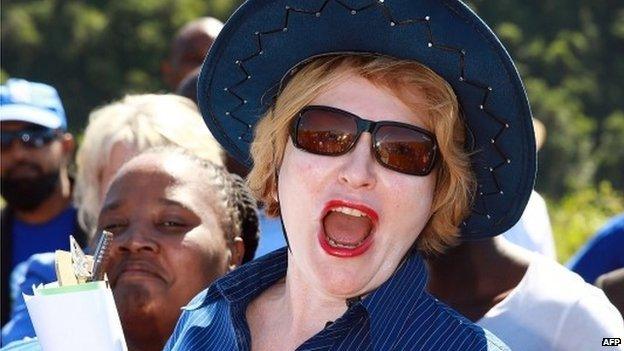Helen Zille undermines Democratic Alliance with colonialism tweets
- Published
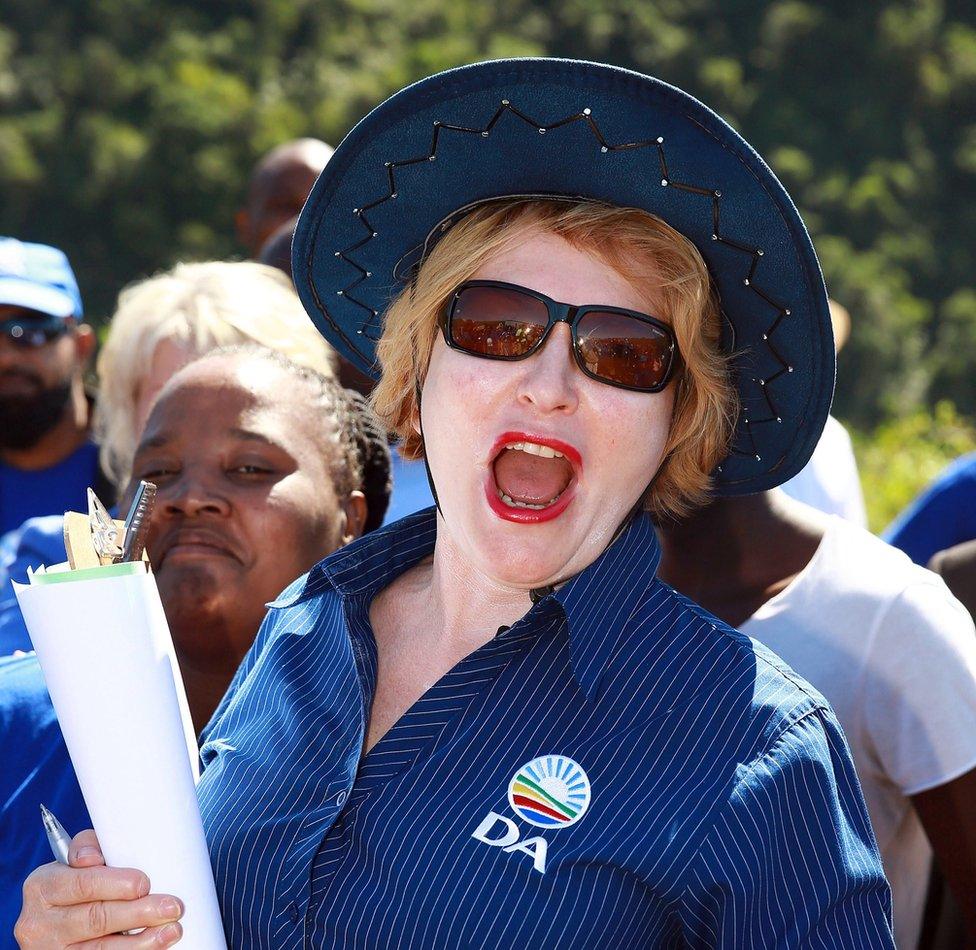
Helen Zille's controversial comments sparked outrage on Twitter
Although we still have two years to go, controversial tweets about the legacy of colonialism by the former leader of South Africa's opposition Democratic Alliance may have scuppered the party's electoral chances.
The comments, suggesting that colonialism was not all negative, are likely to roll back some of the significant gains made by the DA into black areas where the electorate is disillusioned with the governing African National Congress.
The DA is already under pressure to take decisive action against Helen Zille for her posts and the party has asked their federal legal commission to investigate the case.
But the controversy will be seen as a major setback ahead of the general election due in 2019 and they come at a time when the ANC itself has been engulfed in a litany of corruption scandals.
The tweets were posted on Thursday.
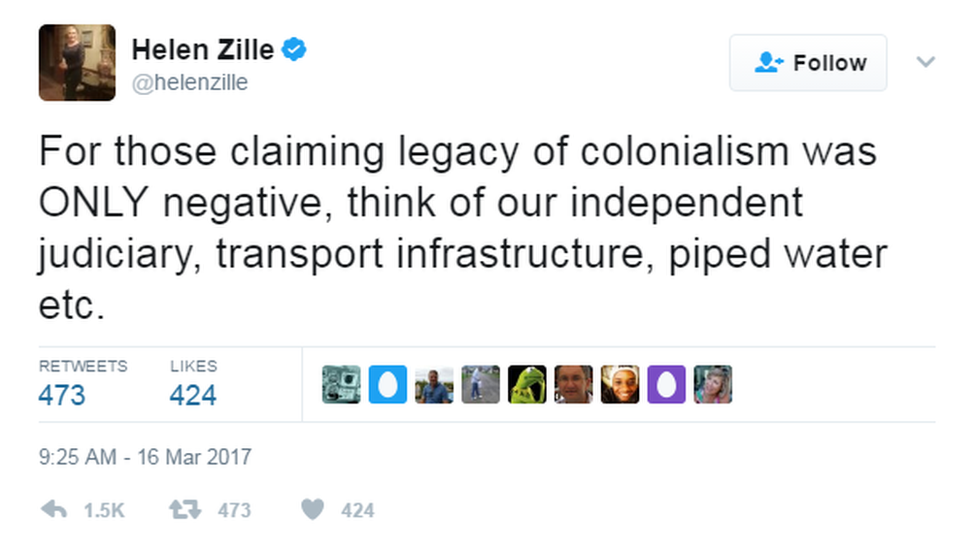
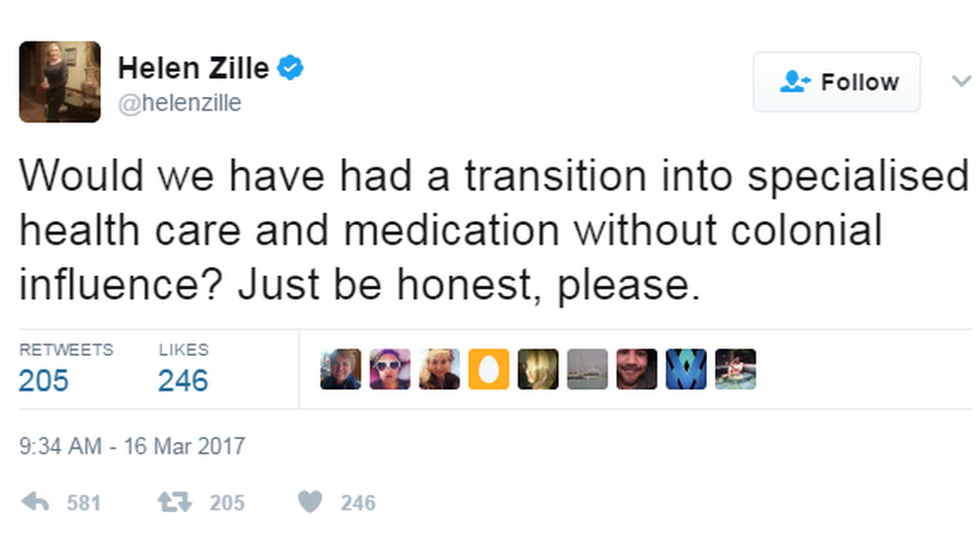
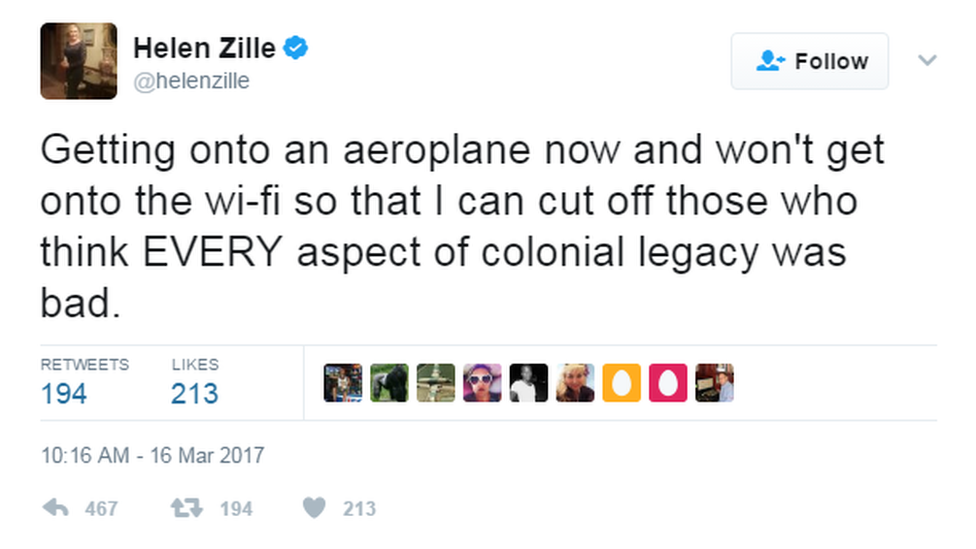
Radio and television talk shows have been inundated with callers expressing their dismay at the Western Cape premier's tweets.
One caller on local talk radio 702 said praising some aspects of colonialism "is a bit like saying the holocaust was bad but Hitler's engineers were great".
The pressure is now on the young and charismatic black leader of the DA Mmusi Maimane to take a clear and unambiguous stance on this saga.
He replaced Ms Zille as party leader in 2015 with a mission to make the DA, historically seen as a party dominated by whites, more attractive to the black majority.
Last year, the DA gained ground in local elections, taking control of cities such as Johannesburg, Pretoria and Port Elizabeth.
Although it gained 27% of the national vote against 54% for the governing ANC, many analysts had raised the real prospect that the party could take power in 2019 if it continued its upward trajectory.
Especially if the ANC remains bogged down in scandal and in-fighting.
But that progress is now under threat.
What angered many black South Africans, who took to social media to express their disgust, is that these tweets were not just a one-off.
In March 2012, the former DA leader was heavily criticised for describing school children leaving the Eastern Cape education system for the Western Cape as "refugees".
Expressing this kind of thinking in a country that is still fresh from the ravages of the brutal system of apartheid was imprudent to say the least - particularly with her journalism background and extensive coverage of the injustices of white minority rule on the black majority.
In her days as a young newspaper journalist, she eloquently reported about the death of anti-apartheid hero Steve Biko who was killed in police cells in September 1977.
Not a party of 'Uncle Toms'
Stories of racial intolerance are reported on a daily basis in South Africa's newspapers.
People accept that there are white supremacists in this country even 23 years after Nelson Mandela was elected the first black president.
But to hear this line of thinking from someone from a group seen as the most progressive in the country has been described as "gut-wrenching".
There are many people who are obviously deeply disappointed by these primitive thoughts.
But for the many black supporters who have walked away from their traditionally left-leaning political parties and joined the DA, it must be cutting like a knife.
Mr Maimane has to demonstrate that under his watch, the DA cannot be seen to be a party of "Uncle Toms".
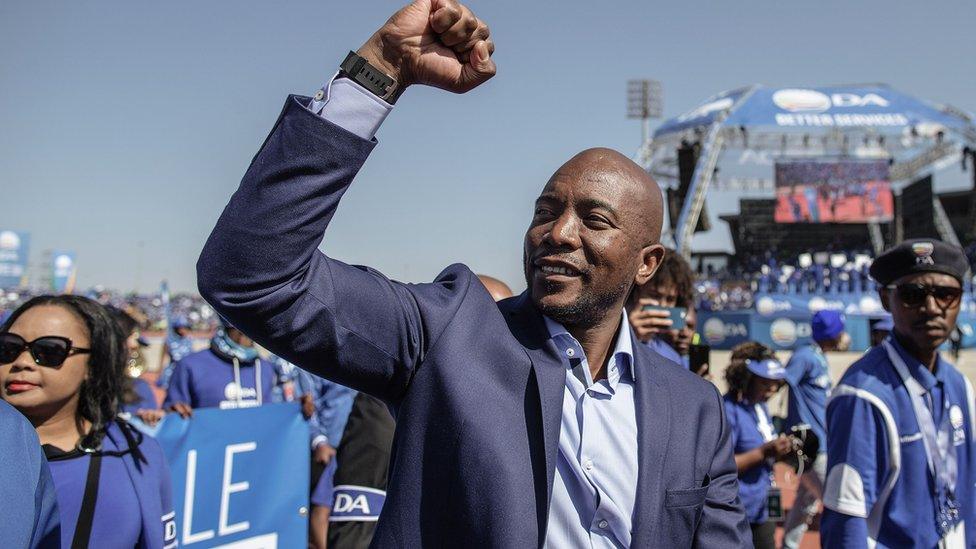
DA leader Mmusi Maimane will have to convince black voters his party has changed
His inaction so far will certainly give ammunition to those who had been hurling insults at him, suggesting he was just a black face brought in to legitimise a party representing the interests of the white minority.
On the other hand Mr Maimane also needs to hold on to the traditional white liberal establishment vote.
He does not want to send a wrong message which will sound to his white supporters like the Pan Africanist Congress chant of the 1990s - "one-settler-one bullet."
So he has a difficult balance to strike.
Apology
Ironically this controversy comes on "anti-racism" week, an annual campaign by the Nelson Mandela and Ahmed Kathrada Foundations aimed at discouraging people from racist behaviour in their daily lives.
Ms Zille's spokesperson, Michael Mpofu, himself a black man, tried to explain the comment away.
"It is important for us to clarify that she was not defending colonialism, she was referring to the Singaporean nation on how they have built a successful economy and she will be responding," he said.
Ms Zille did apologise via the same medium. But the horse had already bolted.
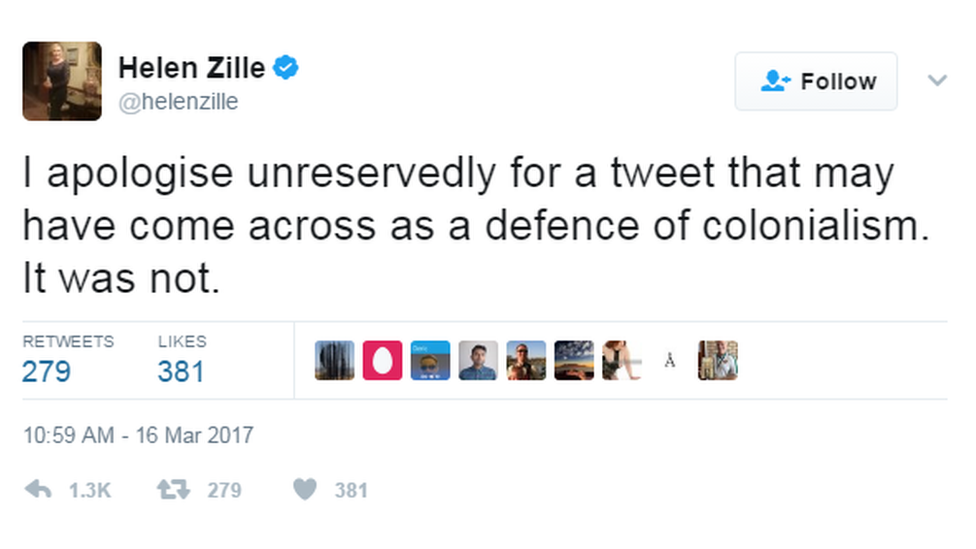
However, sadly for the DA this is not the first time some of its most prominent leaders have been hauled over the coals for making politically incorrect racial comments.
Two years ago, Dianne Kolher-Barnard a DA MP who was the shadow police minister, shared a post on social media suggesting that life had been better under former apartheid leader P W Botha.
She was sanctioned and demoted from her shadow police minister position as a consequence.
Another party supporter Penny Sparrow was forced to resign from the DA after she likened black beach goers in Durban to "monkeys" on Facebook.
And in May 2015, when Mr Maimane was elected at a party conference, the late veteran journalist Allister Sparks, spoke of his admiration for the architect of apartheid Hendrik Verwoerd.
All three were forced to apologise.
Political analyst Ralph Mathekga said Ms Zille's position is untenable and this time the DA must be bold.
"I don't think she's still fit to continue to lead the party as premier of the province. This is a major issue and she's exposing the DA very unnecessarily," he said.
- Published25 April 2014
